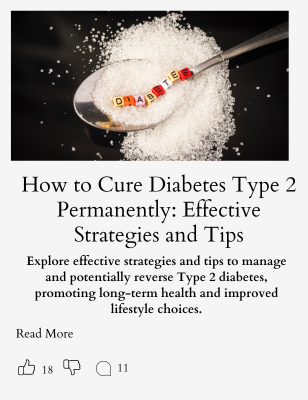Memory loss in the elderly is a growing concern as people age. While some memory decline is a natural part of aging, steps can be taken to reduce its impact.
Staying mentally active and maintaining a healthy lifestyle plays a crucial role in preventing significant memory loss. This can include engaging in puzzles, reading, or learning new skills, all of which help keep the brain sharp and challenged.

Lifestyle choices, such as a balanced diet and regular physical activity, are also vital.
Foods rich in antioxidants, like berries and nuts, can support brain health. Moreover, regular exercise improves blood flow to the brain and reduces the risk of age-related memory decline.
Social interactions and strong emotional connections further contribute to a healthy memory, as they can strengthen neural networks and enhance cognitive function.
Understanding Memory Loss in Aging

Memory loss in the elderly can stem from various cognitive impairments, including dementia and mild cognitive impairment (MCI). Recognizing different types of impairments and their symptoms is essential for understanding these changes.
Types of Dementia and Cognitive Impairment
Dementia is an umbrella term that includes several specific types, such as Alzheimer’s disease and vascular dementia. These conditions are characterized by a decline in memory, language, and problem-solving skills.
Alzheimer’s is the most common form, often worsening over time. Vascular dementia occurs due to reduced blood flow to the brain, leading to memory and thinking challenges.
Mild cognitive impairment is another form, not classified as dementia but still involving noticeable memory problems. The difference is that MCI does not significantly interfere with daily life.
While not all with MCI progress to dementia, regular monitoring is crucial. Addressing factors like diet, exercise, and mental stimulation can help manage the risk.
Symptoms of Mild Cognitive Impairment
Mild cognitive impairment often presents symptoms less severe than those seen in dementia. These include frequent forgetfulness, losing train of thought, and difficulty managing complex tasks.
Individuals might repeat questions or experience trouble recalling appointments or recent conversations.
Despite these challenges, people with MCI typically maintain independence. It’s crucial for them and their caregivers to pay attention to changes in memory and cognitive functions.
Engaging in mental activities and maintaining social connections can provide some benefits. If symptoms gradually worsen, consulting a healthcare professional becomes important to rule out progression to more severe conditions like Alzheimer’s or other dementias.
Lifestyle Factors Influencing Memory Health
Adopting a healthy lifestyle can play a crucial role in maintaining memory health in elderly individuals. Exercise and nutrition are key factors that can significantly impact brain health and cognitive function.
Impact of Exercise on Brain Health
Physical exercise is vital for maintaining a healthy brain. Engaging regularly in activities like walking, swimming, or aerobics can boost memory by increasing blood flow and oxygen to the brain.
Studies suggest that exercise stimulates the production of hormones that enhance brain cell growth.
Regular activity may also improve mental clarity and reduce the risk of cognitive diseases like Alzheimer’s. People who exercise often tend to have better memory retention and cognitive skills.
Exercise can also help manage other health factors like high blood pressure and diabetes, which can harm cognitive function if not controlled.
Nutrition and Memory
A balanced diet rich in fruits, vegetables, and whole grains can support memory health. Following a Mediterranean diet, which includes olive oil, fish, and nuts, is known for its positive effects on cognition. This diet type may protect against cognitive decline in old age.
Reducing alcohol consumption and avoiding smoking can also prevent memory deterioration.
Healthy eating helps regulate glucose levels, thus managing diabetes, which can affect memory. Including antioxidants and vitamins from various foods can aid in strengthening neural connections in the brain.
Managing Health Conditions That Affect Memory
Managing health conditions like high blood pressure, diabetes, and vitamin deficiencies can help improve memory health. Regular check-ups play a crucial role in maintaining cognitive function by detecting and treating issues early. Medication management is also vital to prevent side effects that can impact memory.
The Role of Medication Management
Proper management of medication is essential for maintaining healthy memory function. Medication can sometimes cause side effects that may impact cognitive abilities.
For example, certain prescriptions for high blood pressure and diabetes, although necessary, may lead to memory issues if not carefully monitored.
A health care provider can assess which medications might affect memory and make adjustments as needed.
Keeping a list of all medications and their dosages can help in these assessments. This allows the provider to manage any interactions that may impair cognitive function.
Patients should also speak with their health care provider before starting any new medication. This ensures a comprehensive approach to managing medical conditions while minimizing risks to memory health.
Importance of Regular Health Check-Ups
Regular health check-ups are essential in managing conditions that might lead to memory problems. Medical conditions like thyroid problems and vitamin deficiencies can significantly affect cognitive health. Blood tests during check-ups can reveal any deficiencies or imbalances.
Health care providers can use these findings to recommend dietary changes or supplements needed.
Additionally, detecting issues like blood clots or diabetes early can prevent further memory-related complications.
It is crucial for individuals to maintain open communication with their health care provider. Routine visits help monitor ongoing medical conditions, allowing for quick adjustments to treatment plans if memory problems arise. These proactive measures are key to maintaining cognitive well-being.
Improve Cognitive Function Through Mental Exercise
Engaging in mental exercises can help maintain or even enhance cognitive function in older adults. Regular mental activities, such as learning new skills and playing brain games, can keep the mind active and improve memory and concentration.
Benefits of Learning New Skills
Learning new skills stimulates the brain and encourages mental growth. Activities like learning a musical instrument, acquiring a new language, or taking up painting can be especially beneficial.
These tasks require concentration and mental effort, helping to sharpen focus and enhance cognitive function.
When individuals engage in skill learning, they create new neural connections. This process can lead to stronger brain plasticity, which is crucial in preventing cognitive decline. Practicing these skills regularly ensures continued improvement in areas like memory and problem-solving capabilities.
Memory Improvement with Brain Games
Brain games are effective tools for exercising the mind. They often involve puzzles, word games, or strategy challenges that require players to think critically and make decisions.
These games can boost memory, attention, and overall cognitive performance.
Strategic games, such as chess or Sudoku, demand the use of mnemonic devices to remember patterns or sequences. This can enhance memory and cognitive abilities in daily life.
Regularly playing these games encourages the brain to stay active and alert, supporting the long-term health of mental faculties.
Daily Habits to Reduce Memory Decline
Engaging in daily habits can play a crucial role in maintaining brain health and improving memory. Simple routine changes and effective strategies can help minimize memory lapses and support cognitive functioning.
Creating a Brain-Healthy Routine
A brain-healthy routine includes regular physical activity, balanced meals, and mental exercises.
Engaging in activities like walking, swimming, or yoga boosts blood flow to the brain, which is vital for maintaining cognitive health. Consistent physical activity can improve memory and lower the risk of cognitive decline.
Eating a balanced diet rich in fruits, vegetables, whole grains, and lean proteins supports brain function. Foods high in omega-3 fatty acids, like salmon and walnuts, are beneficial for brain health.
Mental exercises, such as puzzles or learning new skills, challenge the mind and keep it active.
Incorporating Memory Aids in Daily Life
Using memory aids can effectively reduce memory lapses. These aids include reminders, notes, or digital apps designed to prompt important tasks or appointments.
Setting consistent daily routines helps minimize forgetfulness by building habits.
Consider using clear and specific labeled containers or organizers for everyday items. This method lowers the chance of losing or forgetting things. Establishing a designated spot for essentials, such as keys and glasses, can also decrease daily frustrations.
Utilizing these tools and establishing structured habits aid in boosting memory improvement efforts.
The Importance of Social and Emotional Health
Social and emotional health play a crucial role in preserving mental function and overall well-being in older adults. By addressing these aspects, individuals may reduce the risk of depression and stress, thereby maintaining a higher quality of life.
Combatting Loneliness and Depression
Loneliness and depression are common challenges faced by the elderly. Feeling isolated can significantly impact mental health. Chronic loneliness is linked to memory decline and increased stress levels. Neurologists emphasize the importance of social connections in reducing these risks.
Creating a supportive network of family, friends, and community resources is essential. Regular contact through phone calls, video chats, or in-person visits can help.
Engaging in activities that bring joy and purpose, like volunteer work or joining clubs, also provides opportunities to connect with others. This engagement can lessen feelings of loneliness and may decrease the likelihood of depression and other mental health conditions.
Engaging in Social Activities
Staying socially active is vital for maintaining cognitive health. Participating in group activities can keep the mind sharp and delay cognitive decline. Activities like attending classes, participating in group exercises, or playing team sports are excellent options.
Interactions in these settings encourage problem-solving and communication, enhancing mental function. This engagement also provides a sense of belonging and routine, which is beneficial for older adults.
Regular participation in community events or faith-based gatherings can provide emotional support and reduce feelings of isolation.
Sleep’s Role in Memory Preservation
Sleep plays a crucial role in maintaining both short-term and long-term memory. It helps brain cells recover and grow, reducing memory decline. Addressing sleep problems and following a healthy routine can support memory preservation.
Addressing Sleep Problems and Disorders
Sleep disorders like insomnia can negatively affect memory by disrupting restful sleep. Identifying and treating such issues can aid in preserving memory. Symptoms may include difficulty falling asleep, waking up frequently, or feeling tired despite sleeping.
Effective treatments might involve cognitive behavioral therapy, improved sleep hygiene, or medication. People should seek help from healthcare providers if sleep problems persist.
Recognizing and addressing these issues promptly can promote better brain function and memory support.
Establishing a Healthy Sleep Routine
A consistent sleep schedule can greatly benefit memory preservation. Going to bed and waking up at the same time each day helps regulate the body’s internal clock. This consistency helps in maintaining cognitive functions, including memory.
Creating a relaxing bedtime routine also supports memory by promoting deeper sleep, allowing brain cells to rest and restore.
This could include activities like reading, taking a warm bath, or meditation. Avoiding caffeine and screens before bed may further improve sleep quality.
Sticking to a routine strengthens sleep patterns, which can lead to better memory retention and reduced decline over time.
Advancements in Memory Loss Research
Recent progress in understanding memory loss provides hope for the elderly facing these challenges. This involves groundbreaking research advancements and new treatments that aim to slow or prevent memory decline.
Emerging Therapies and Treatments
Significant strides are being made in developing new therapies for memory loss. Scientists are exploring different medicines that target brain health, including medications that enhance insulin signaling to improve cognitive function.
Physical activity is also being studied for its role in memory retention, with aerobic exercises showing promising results in delaying memory decline.
Natural remedies are another area of focus, with researchers investigating herbs like jatamansi for their potential benefits. This non-drug approach could offer a complementary option in managing age-related forgetfulness, providing a natural ally for the brain. As research continues to unfold, these therapies may soon become part of regular treatment protocols, helping the elderly maintain mental clarity.
Staying Informed on Current Health Topics
Being informed about current health topics is vital in addressing memory loss.
Organizations like the National Institute on Aging (NIA) and the Mayo Clinic provide updates on the latest developments in neuroscience and healthcare strategies. These include insights into lifestyle choices that can support brain health, such as balanced diets and mental exercises.
Understanding new findings and how they translate into everyday actions is key.
Regular health screenings and discussions with healthcare providers can guide individuals in managing health effectively.
Staying current with scientific discoveries empowers individuals to take proactive steps, ensuring they benefit from the latest safety and efficacy standards in memory care.
Frequently Asked Questions
Memory loss in the elderly is a common concern that can affect their quality of life. Various strategies, lifestyle changes, and tools can help manage and even improve memory issues in seniors.
What are the most effective strategies to improve memory in the elderly?
Engaging in regular mental exercises, such as puzzles and crosswords, can help improve memory.
Physical activity like walking or yoga also supports brain health. A healthy diet rich in fruits, vegetables, and omega-3 fatty acids plays a crucial role in maintaining cognitive function.
Can certain medications contribute to memory impairment in seniors?
Yes, certain medications can affect memory.
Drugs for sleep, anxiety, and allergies are known to cause memory issues as a side effect. It’s essential for seniors to consult their doctors to review medications and adjust dosages if necessary.
What are common causes of forgetfulness in the elderly, and how can they be addressed?
Forgetfulness can result from stress, depression, or lack of sleep.
Addressing these issues with lifestyle changes like regular sleep patterns and stress reduction techniques can be helpful. Medical conditions like thyroid disorders or vitamin deficiencies can also cause memory problems and should be evaluated by a healthcare professional.
How can lifestyle changes impact memory preservation in older adults?
Lifestyle changes, such as adopting a balanced diet, maintaining social connections, and staying physically active, can significantly impact memory preservation.
Activities like regular physical exercise and social interaction stimulate the brain and slow cognitive decline.
What are the distinguishing features of normal memory changes with aging versus dementia?
Normal aging may involve slower recall of names or forgetting appointments, which is typically manageable with reminders.
Dementia, however, includes more severe symptoms like forgetting common words, becoming lost in familiar places, and changes in judgment and reasoning skills.
What memory assessment tools are recommended for evaluating memory loss in the elderly?
Healthcare professionals often use memory assessment tools like the Mini-Mental State Examination (MMSE) or the Montreal Cognitive Assessment (MoCA) to evaluate memory loss.
These tests help differentiate between normal age-related changes and more significant cognitive impairments.
















